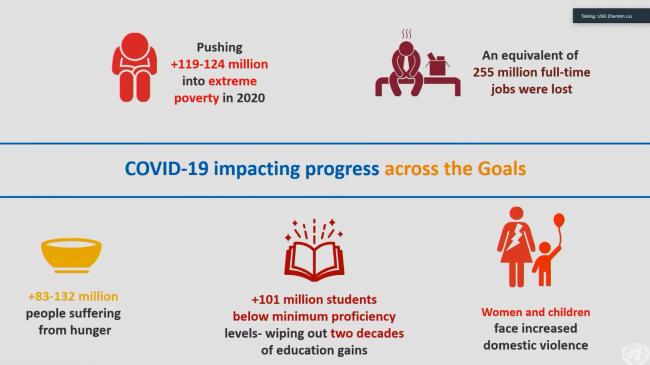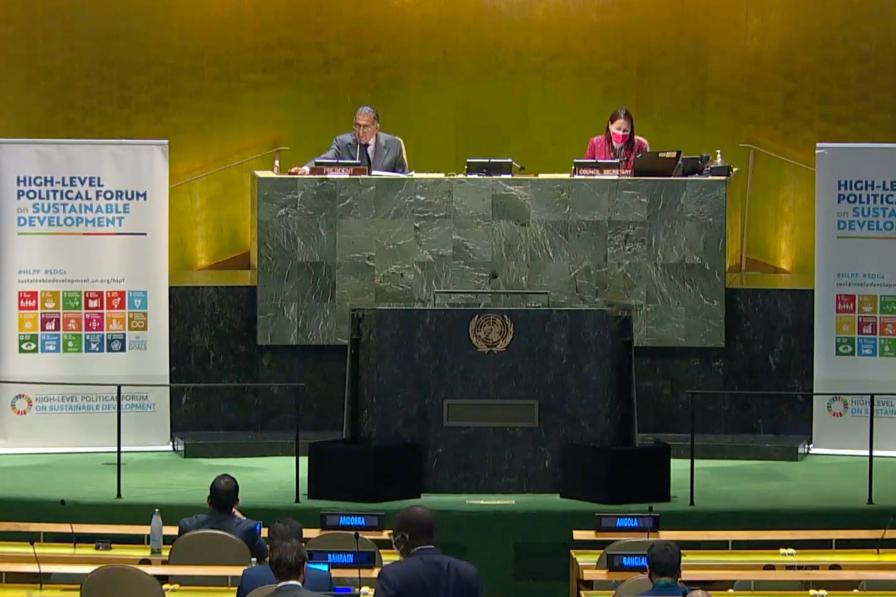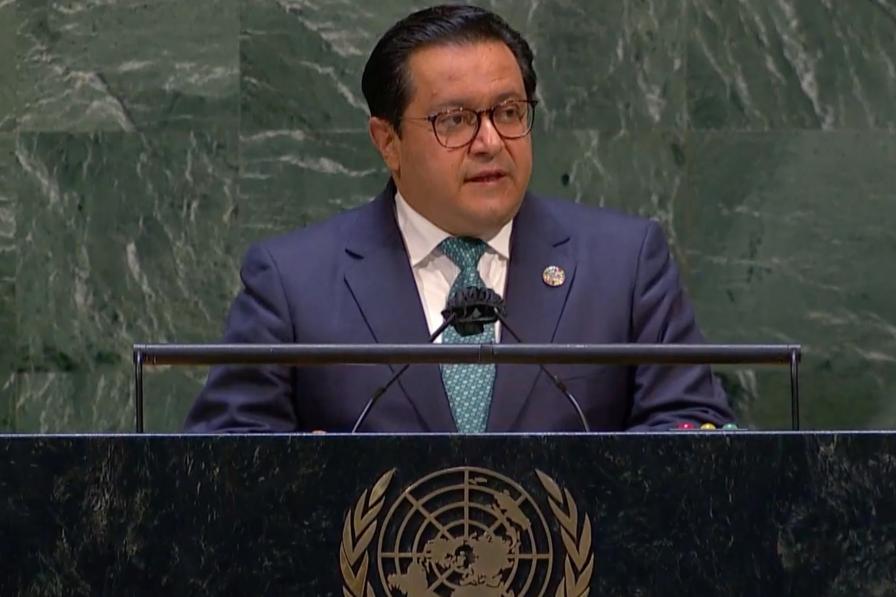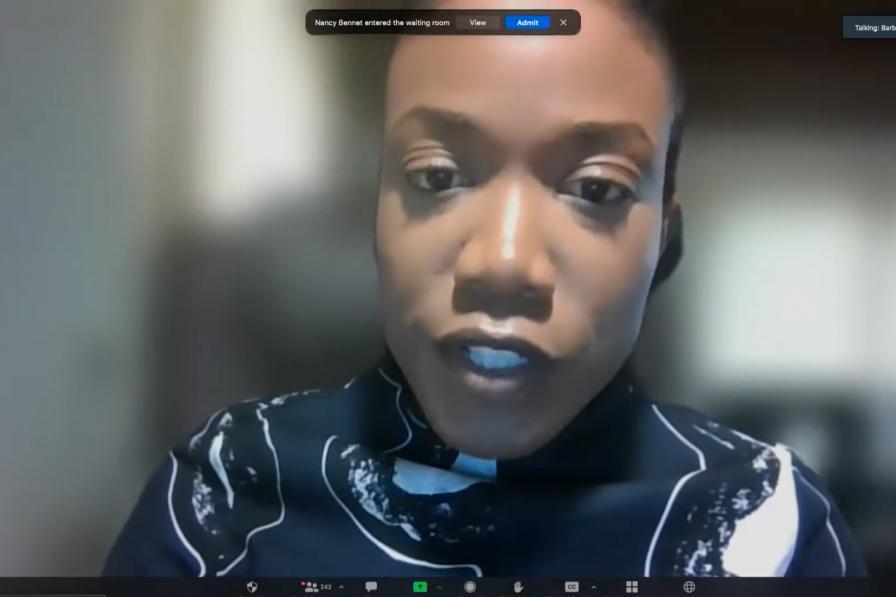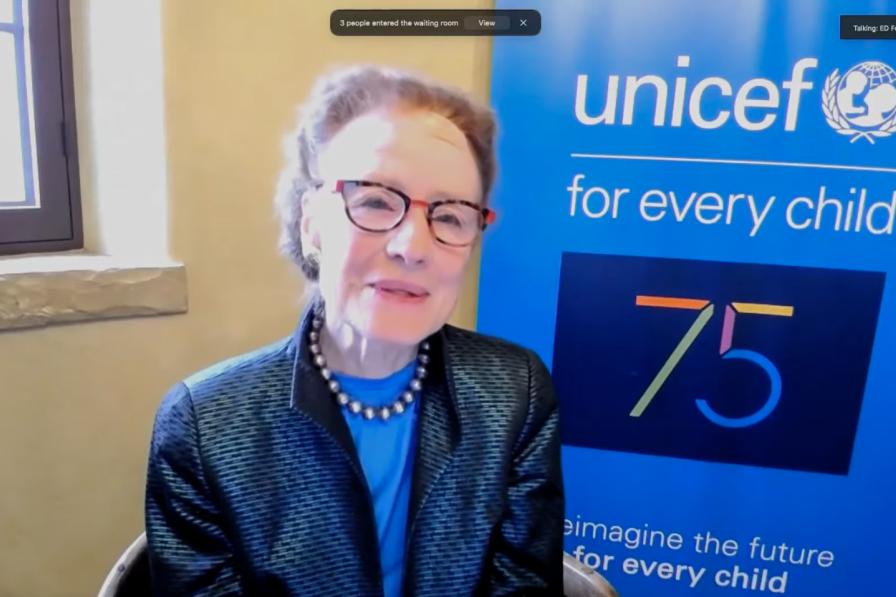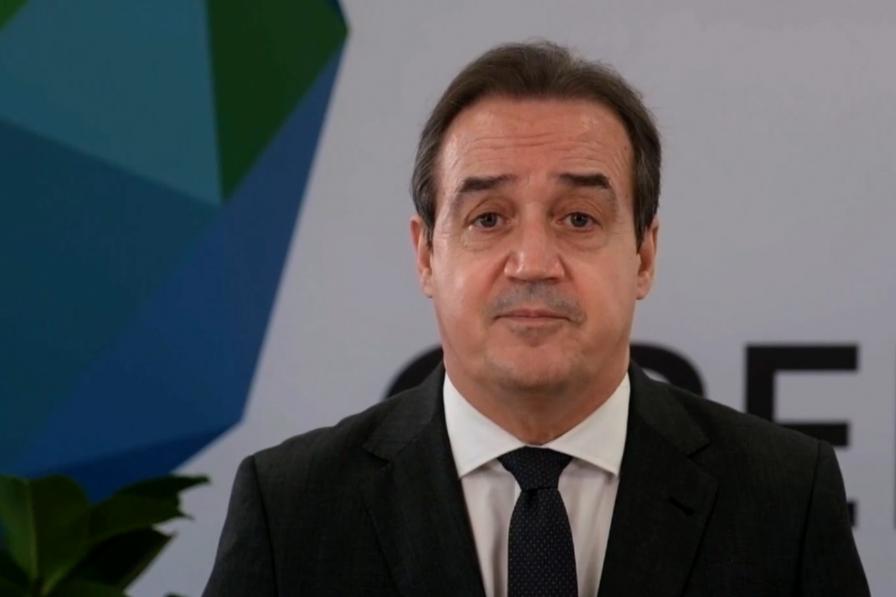The 2021 High-level Political Forum on Sustainable Development (HLPF) opened Tuesday morning with stark warnings about the impact of the COVID-19 pandemic on sustainable development. Many speakers noted how the pandemic exposed and exacerbated systemic inequalities and reversed decades of progress, pushing more than 100 million people back into poverty.
In opening the session, Munir Akram, President, UN Economic and Social Council (ECOSOC), called on participants to use the HLPF to demonstrate unwavering commitment to the 2030 Agenda for Sustainable Development and its Sustainable Development Goals (SDGs).
During the opening segment, statements reiterated the challenge of restoring trust in institutions, rebuilding the social contract, and enabling an economic recovery for people and planet.
Macky Sall, President of Senegal, called for equal access to vaccines and additional financing for low-income countries, especially in Africa. Tedros Adhanom, Director-General, World Health Organization (WHO), noted that the COVID-19 pandemic has become an issue of the “haves versus have-nots” in developed and developing countries and called for vaccine equity.
Kristalina Georgieva, Managing Director, International Monetary Fund, highlighted that for the first time in 20 years, we are falling behind on the fight against poverty. Ngozi Okonjo-Iweala, Director-General, World Trade Organization, said Member States should free-up vaccine supply chains by lowering trade restrictions.
The first panel discussion addressed how the COVID-19 recovery can be an opportunity to realize the SDGs. Liu Zhenmin, Under-Secretary-General for Economic and Social Affairs, presented the Secretary-General’s report on progress towards the SDGs, noting that the global community is now at a critical moment that depends on a collective response to deliver the SDGs.
Moderated by UN Development Programme Administrator Achim Steiner, the panelists addressed:
- Gender, equality and education
- Strong social protection systems
- Universal internet connectivity
- Equitable distribution of COVID-19 vaccines
- Prioritizing inclusion and equity in the care economy, which represents 9% of global gross domestic product (GDP)
- Public-private partnerships
The second panel focused on leaving no one behind. Panelists discussed the challenges faced by least developed countries, hard-to-reach populations in the Global South, migrants, children, and other vulnerable populations. Jane Coffin, Senior Vice President, Internet Society, explained that during the pandemic, internet has been a lifeline, serving as a critical enabler of human development.
The third panel addressed building resilience against future shocks through structural changes and investment in sustainable infrastructure. Moderator Atif Kubursi, McMaster University, Canada, noted how the digital and infrastructural divides have hampered our collective security.
Panelists and discussants highlighted the need for international cooperation, public-private partnerships, and inclusive and resilient infrastructure investment. Vera Songwe, Executive Secretary, Economic Commission for Africa, noted that Africa has only vaccinated 2% of its population and needs better and cheaper market access to vaccines.
See the daily Earth Negotiations Bulletin for complete coverage.
To receive continuing coverage of this event delivered to your inbox, subscribe to the ENB Update newsletter.
Images from the Meeting

Birgitta Tazelaar, Deputy Vice-Minister for International Cooperation, Ministry of Foreign Affairs, the Netherlands
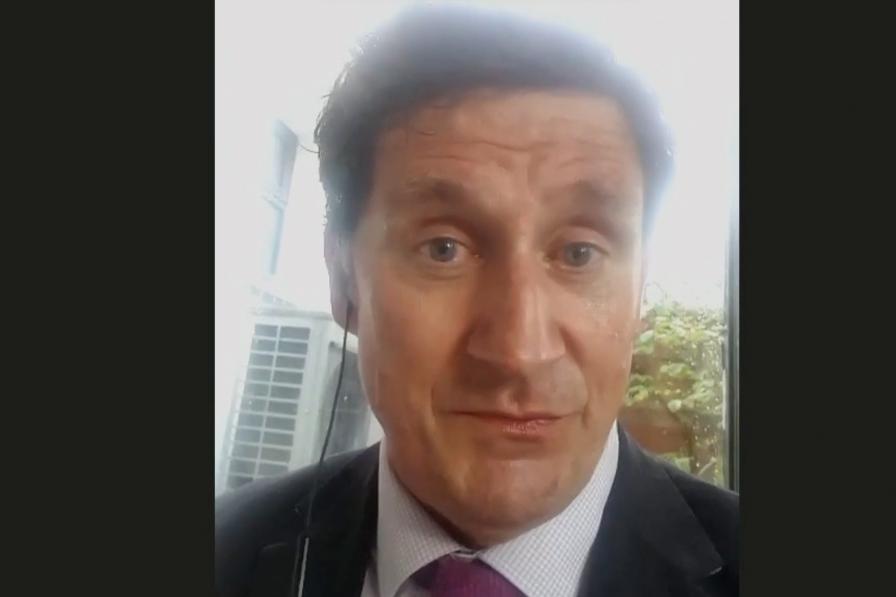
Eamon Ryan, Minister for Transport and Minister for the Environment, Climate and Communications, Ireland
